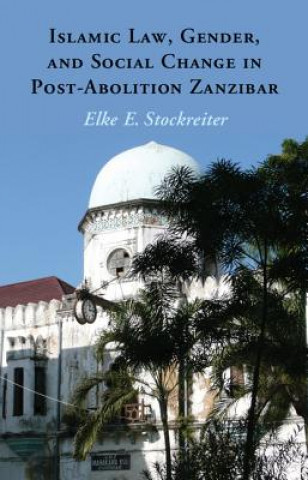
Doručení
Nákupní rádce





Nehodí se? Vůbec nevadí! U nás můžete do 30 dní vrátit
 Dárkový poukaz
V libovolné hodnotě
Dárkový poukaz
V libovolné hodnotě
S dárkovým poukazem nešlápnete vedle. Obdarovaný si za dárkový poukaz může vybrat cokoliv z naší nabídky.
Islamic Law, Gender and Social Change in Post-Abolition Zanzibar
 Angličtina
Angličtina
 352 b
352 b
30 dní na vrácení zboží
Mohlo by vás také zajímat


After the abolition of slavery in 1897, Islamic courts in Zanzibar (East Africa) became central institutions where former slaves negotiated socio-economic participation. By using difficult-to-read Islamic court records in Arabic, Elke Stockreiter reassesses the workings of these courts as well as gender and social relations in Zanzibar Town during British colonial rule (1890–1963). She shows how Muslim judges maintained their autonomy within the sphere of family law and describes how these judges helped advance the rights of women, ex-slaves and other marginalised groups. As was common in other parts of the Muslim world, women usually had to buy their divorce. Thus, Muslim judges played important roles as litigants, moving up the social hierarchy, with ethnicisation increasingly influencing all factors. Drawing upon these previously unexplored sources, this study investigates how Muslim judges both mediated and generated discourses of inclusion and exclusion based on social status rather than gender.
Informace o knize
 Angličtina
Angličtina
Kategorie




 Jak nakupovat
Jak nakupovat






























